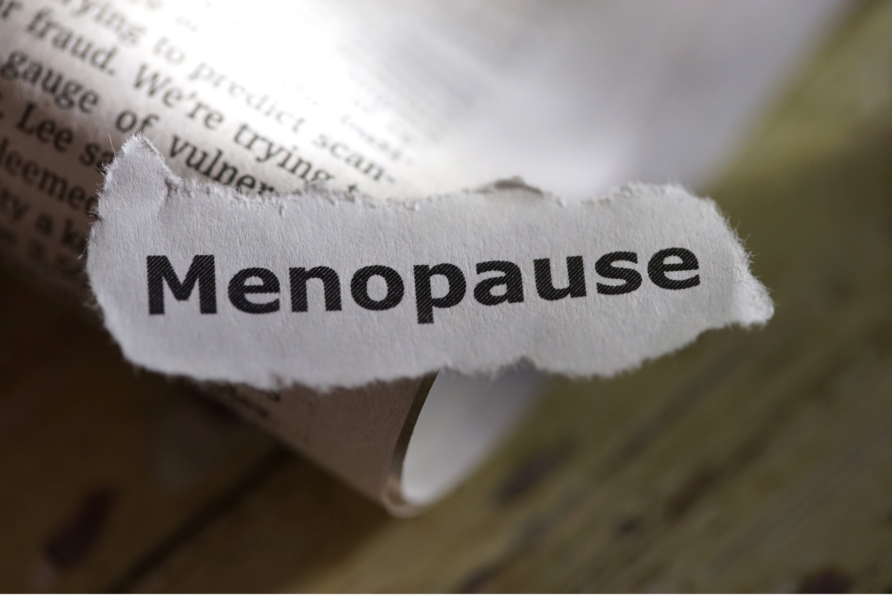How much do you know about menopause?
I’m not sure which button I’ve inadvertently pressed on my phone but I now regularly receive reminders that this is the International or National Awareness day/week/month for… well lots of worthwhile and, in some cases, intriguing causes. Personal favourites have included 4 July ‘Eat an Extra Dessert day’ and 7 July ‘World Chocolate Day’.
October is World Menopause Awareness Month, with Menopause Awareness Day UK taking place on 18 October. Menopause, the biological stage in a woman’s life that occurs when hormones change and eventually menstruation stops, is medically defined as the ‘day’ a woman has not had a period for 12 consecutive months. This is something I hadn’t realised until I took part in Menopause Champion training earlier this year. I also hadn’t realised that menopausal women are the fastest growing workforce demographic in the UK, particularly in the voluntary and health sectors.
So how much do you know about menopause?
Here‘s a little quiz that was part of the menopause training I went on that was used to prompt discussion about our own awareness.
Why not grab a cuppa and a few minutes and see how much you know.
You will have to mark your own answers and there are no prizes but you may know more than you realised and it could help raise awareness of aspects of menopause and support, if needed, for family, friends and colleagues experiencing their own unique and often intriguing journey through this time.
1. What’s the average age of menopause in the UK? (answer in years)
2. How many people are affected by menopause symptoms at work? ( ? / 10)
3. How many women experience menopause symptoms? (? /4)
4. Name five symptoms of the menopause?
5. What is perimenopause?
6. What percent of women go through early menopause?
7. Why might someone go through an early menopause?
8. What are the three key hormones that play a part in the menopause transition?
9. Name at least three lifestyle changes someone should consider to support themselves through menopause? (up to 3 points)
10. What is andropause?
How did you do??
I’ve come to learn from my own, and talking to others, that everyone’s menopause experience is different. We all have different views, philosophies and medical histories that will determine our unique journey.
Brain fog can lead to some frustrating and funny moments., Flushes can arrive at the most inconvenient of times, and disturbed sleep –well that can be very challenging not only for the person experiencing this symptom but also those around them. It’s often hard to feel experienced, knowledgeable, empowered, capable and fabulous but that’s what we are. The hot flushes are after all really just power surges!
If you would like to find out more about menopause there are a wealth of resources available, particularly during Menopause Awareness month. Humber and North Yorkshire Health and Care Partnership are running a festival of events around menopause, or why not take a look at the menopause hub on Henpicked’s website here?
Answers
1. 51 – 8 out of 10 menopausal women are in work at this age and have a life expectancy of 83. In fact, this is likely to be a half-way point of life for many women as there is a one in six chance of living to be a 100.
2. Eight out of 10.
3. Three in every four.
4. Difficulty sleeping, insomnia or fatigue, hot flushes during the day or night, low mood, depression or changes in mood, nervousness, worry or anxiety, reduced ability to concentrate or focus, problems with memory recall, migraines or headaches, aches and pains, urinary issues, e.g. increased frequency, and this is to name just a few.
5. The time leading up to menopause.
6. 5% before the age of 40.
7. POI (Premature Ovarian Failure)/Surgery/medication.
8. Oestrogen, progesterone, testosterone.
9. Exercise/diet/quitting smoking/reducing alcohol/extra calcium/vitamin D/supplements.
10. Andropause is the age-related decline in hormones men go through. In an otherwise healthy male, they would not normally experience menopause-types symptoms as the change in hormones is much slower and a gentle decline. However, there are conditions such as testosterone deficiency syndrome and hormone therapy for things like prostate cancer treatment that could bring about menopause type symptoms. We also need to understand that not everyone experiencing menopause identifies as a woman but may still have the appropriate biological make-up to experience menopause.



